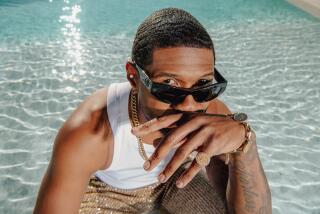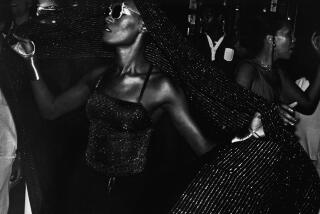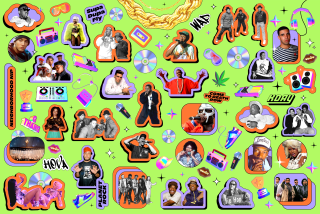POP MUSIC REVIEW : The Groove Is Gone : Black Uhuru Has the Harmonies but Not the Drive
- Share via
SAN JUAN CAPISTRANO — Wasn’t the World Beat revolution supposed to have overtaken the planet by now? That seemed like a natural expectation to anyone who saw the powerful double bill of Black Uhuru and King Sunny Ade at the Pacific Amphitheatre a few years ago. Now both acts are struggling to keep an audience on the club circuit--a predicament shared even by Ladysmith Black Mambazo, which was exposed to adoring millions while performing with Paul Simon.
Out of sight, out of mind, one supposes. Certainly radio, as soon as it could, pushed this music away with open arms. But it’s not entirely the media’s fault. Although Africa continues to be a vital fount for new music, the wellspring of Jamaican reggae has dried up considerably in recent years. The biggest stab at progress has been that instead of just invoking the name of Marcus Garvey 52 times in a song, reggae singers have put Nelson Mandela’s into heavy rotation as well.
It’s possible that Mandela would not be a free man today had there not been music that helped to raise awareness of his plight. But reggae, with its rote, formulaic approach, can also deaden consciousness as much as raise it.
At the Coach House on Sunday, Black Uhuru bounced the old consciousness both up and down a bit. The veteran Jamaican troupe, in its present incarnation, can boast of some refreshing roots reggae harmonies and modern beats, but it just as often seemed to drift like a ship with no wind in its sails.
The group used to have plenty of bluster in former lead singer Michael Rose, who always seemed to evince a healthy contempt for his American audiences as he mixed his messages of universal love with anti-feminist or anti-papal diatribes. (Some Rastafarians maintain that the Pope is the Antichrist, and years before the recent British film “The Pope Must Die” caused such a ruckus, Rose would sing “keel de Pope” in concerts.)
The real fury of Black Uhuru, though, was its legendary rhythm section--drummer Sly Dunbar and bassist Robbie Shakespeare. They used to lay grooves ocean-deep and so persuasive that the group’s front line seemed only like window-dressing.
Although the five members in the current instrumental section are capable, they aren’t exactly thunder lizards.
The front line for the past couple of years, however, actually predates the ‘80s lineup that had Rose and female singer Puma Jones (who exited the band a few years ago and who died last year). Perennial member Duckie Simpson is joined by Don Carlos (taking the bulk of the solo vocals) and Garth Dennis, who with Simpson led Black Uhuru when it formed in the mid-’70s.
Their voices blend in a rich, appealingly rough-hewn harmony, although none individually has the vocal personality of a Burning Spear or a Toots Hibbert. (Indeed, Simpson leaves the lightest musical imprint this side of Wham’s Andrew Ridgley, although he shuffles better.)
Although the group dipped into the group’s Rose-era catalogue, most of the set came from its most recent two albums--”Iron Storm” and “Now”--which feature the current lineup.
Simpson took over the rap Ice-T performs on the recorded version of “Tip of the Iceberg,” and added a deep-voiced dub to “Thinking About You, “ a romantic tune from “Now.” Although lighter in theme and delivery than most of the show’s politicized fare, that song has a persuasive pop melody ideally suited to the blended voices.
Far more often, though, the songs meandered without even a strong dance groove to compensate for the lack of drive of the singers. The most egregious example came late in the set in an unfocused, interminable take on the Jimi Hendrix arrangement of “Hey, Joe”--no one in the group seemed willing to take responsibility for adding a spark to the song.
But something must have inspired the band between the end of the set and the encore. They returned to offer a vibrant medley of Uhuru’s greatest hits, including “Shine Eye Gal,” “Plastic Smile,” “General Penitentiary” and “Guess Who’s Coming to Dinner?”
Opening act World Anthem, featuring some old members of the 714 band, had pretty much the same assets and debits as the headliner.
More to Read
The biggest entertainment stories
Get our big stories about Hollywood, film, television, music, arts, culture and more right in your inbox as soon as they publish.
You may occasionally receive promotional content from the Los Angeles Times.










